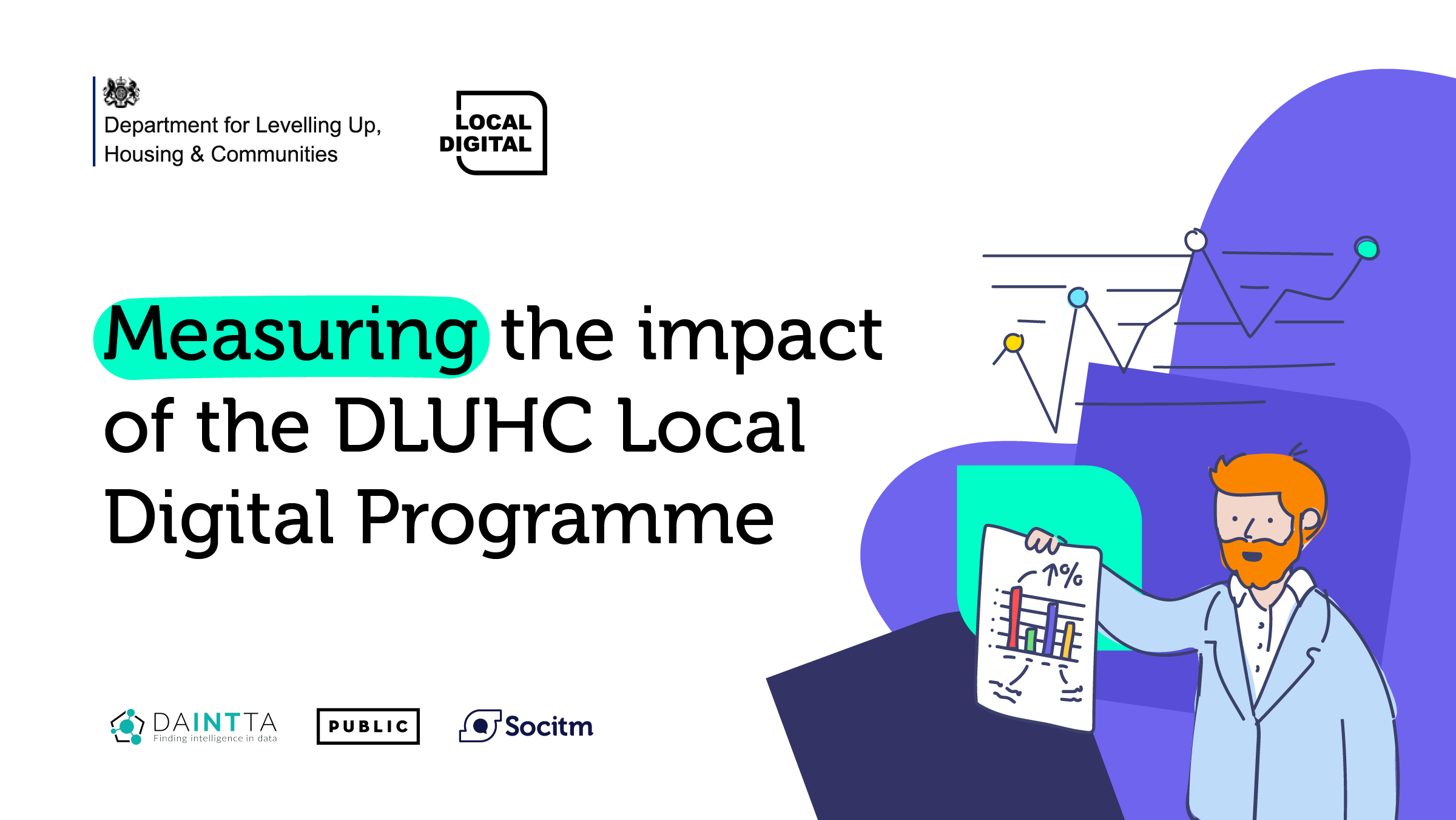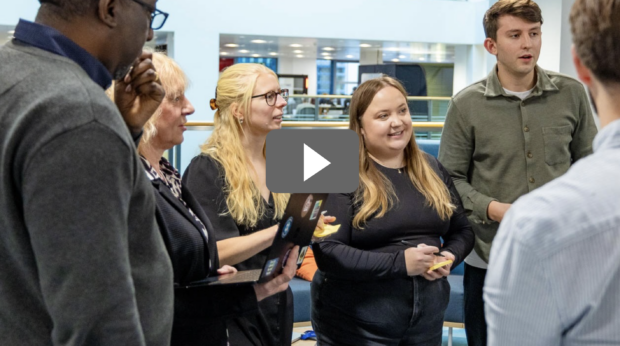
In March 2023, we commissioned an independent evaluation of the Local Digital programme to understand the impact and value-for-money of the support we offer to local government.
Working with a consortium of partners, our aim is to better understand the challenges councils are facing in terms of digital and cyber security, and measure the effectiveness and impact of the Local Digital programme.
To measure impact, the team is collecting information from a range of different councils. We’re using a variety of methods to gather insight, including surveys, interviews and workshops. This information will help us to demonstrate what delivers the best outcomes for councils and identify opportunities for further support, funding initiatives and interventions to support the sector.
In this blog post, we share some of the interesting findings from our evaluation so far.
Introduction to impact evaluation
A core part of impact evaluation is establishing a view of what would have happened in the absence of a policy or intervention. This scenario is called the ‘counterfactual’, and we use various methods to uncover a plausible view of what this could look like.
Once we have established the counterfactual, we can then identify the impact of a policy or intervention by comparing the counterfactual with what we observe when they are implemented – in this case, the Local Digital programme.
To make this observation, we created a survey for councils to gain a high-level understanding of their digital and cyber posture. To best enable comparison, we surveyed councils that have engaged with Local Digital, including those participating in Round 6 of the Local Digital Fund and Future Councils, as well as councils that are not engaged with our programme.
Two different surveys were shared with councils: one focusing on both digital and cyber capability, and one focusing purely on digital. We received 70 responses to the questions relating to digital – roughly a quarter of all British councils – and have chosen to focus on these findings in this blog post.
What we’ve found so far
Due to the sample size, the below results are not presented as representative across the sector, but rather a snapshot of our findings so far. All mentions of ‘average’ in this blog post refer to the median response – the middle point of all responses to a question.
Organisational culture
For digital transformation to take hold across a council, it is important that leadership provides clear direction and oversight. We were pleased to hear that nearly three-quarters of responding councils (51 out of 71) reported having an identified leader responsible for technology, and that over half (37 out of 70) have a published digital strategy.
Over half of responding councils (39 out of 71) reported having an open culture that values digital ways of working, sharing experiences, collaborating and reusing good practice. This is great to hear as it reflects one of the aims of the Local Digital programme: to promote open and collaborative working methods.

Skills development
Providing staff with training to develop their digital and technical skills is important in helping council officers to develop and integrate digital solutions. We found that the responding councils generally equip their staff with the digital and technical skills they need to meet their responsibilities. The majority of councils (61 out of 71) declared that they equipped their staff with the required skills to some extent, however only one council stated that it provided such training in full.
Similarly, while over 80% of councils (53 out of 64) said staff had been offered training focused on developing their digital skills in the last year, councils estimated that, on average, just a third of their staff have completed such training during that time.

Technologies
In the survey, we asked councils about the sorts of technologies they rely upon to deliver services. Some technologies, such as those that can be considered ‘legacy’, are less secure than modern varieties, and can also cause service delivery to be less efficient than it could be.
Budget pressures can mean that councils face difficulties in upgrading, but servicing legacy technology is also very costly. On average, 15% of councils’ digital budgets are spent maintaining legacy technology. While this is low, given the expense and potential vulnerabilities of these systems, we aim to see this figure reduced to zero as some councils reportedly have done already.
Moving away from legacy technology, wherever possible, helps to improve both security and efficiency. Councils are innovating with the technologies they apply to deliver services, with over 80% (47 out of 57) reportedly applying new technologies in the last 6 months.
What this all means
The evaluation survey findings offer a valuable first look at councils’ digital and cyber posture, presenting a mixture of promising existing conditions and areas for improvement.
We will continue to work with councils that responded to our surveys to track their progress as the Local Digital programme evolves. We are grateful to all those taking the time to share their experiences with us.
You can hear more about the initial findings at a webinar on Wednesday 18 October, 11am to 12pm.
The webinar will be hosted by our evaluation partner, PUBLIC, and will include a discussion of the main digital priorities and challenges faced by councils, as well as benchmarking on topics like cloud adoption, legacy spend, and service area transformation.
What’s next?
The findings from these initial surveys will continue to be analysed. They are part of a bigger body of evidence we are collecting to inform our understanding of Local Digital’s impact.
In the coming months, we will publish more information about the programme evaluation via our usual channels:


